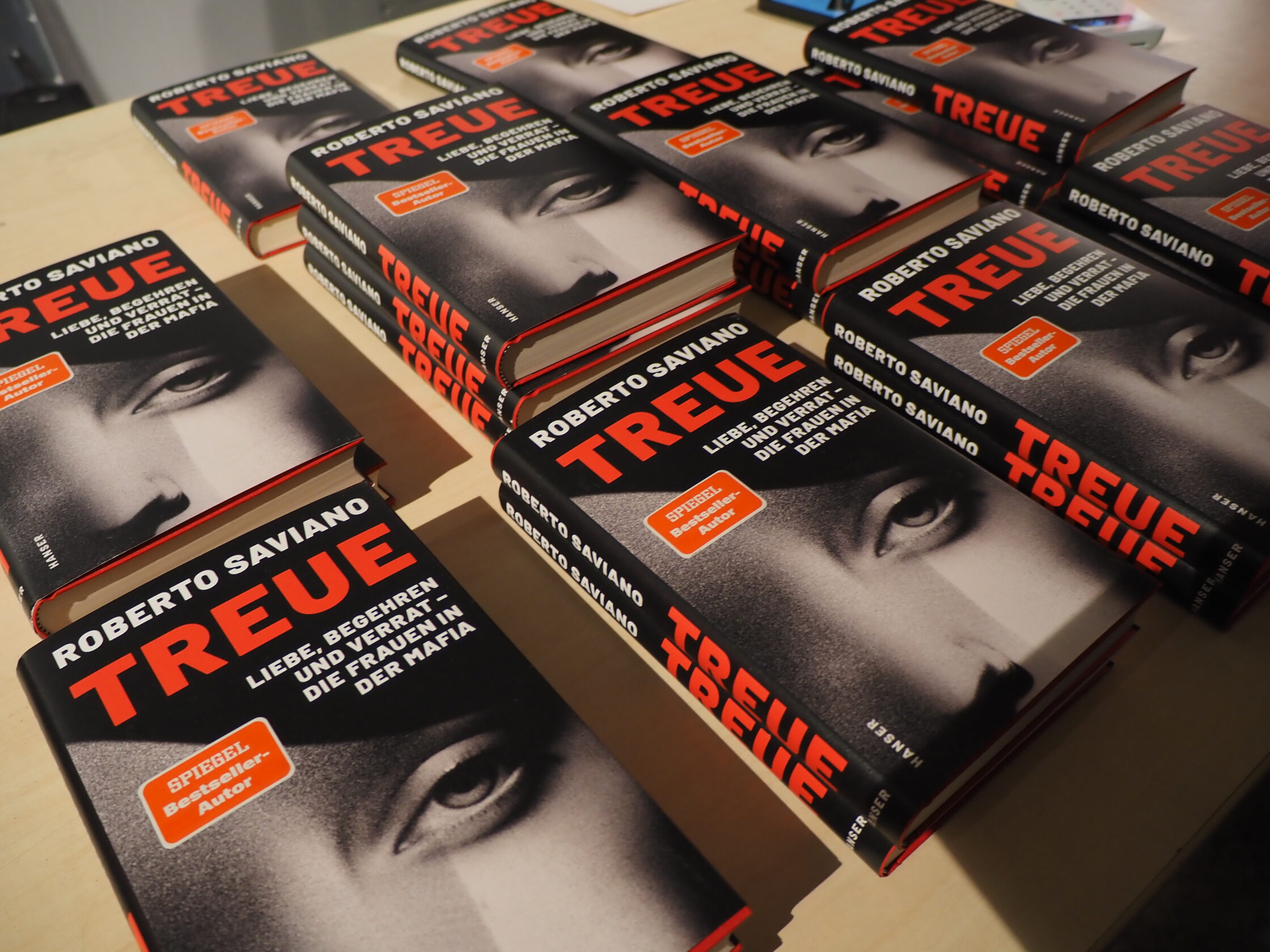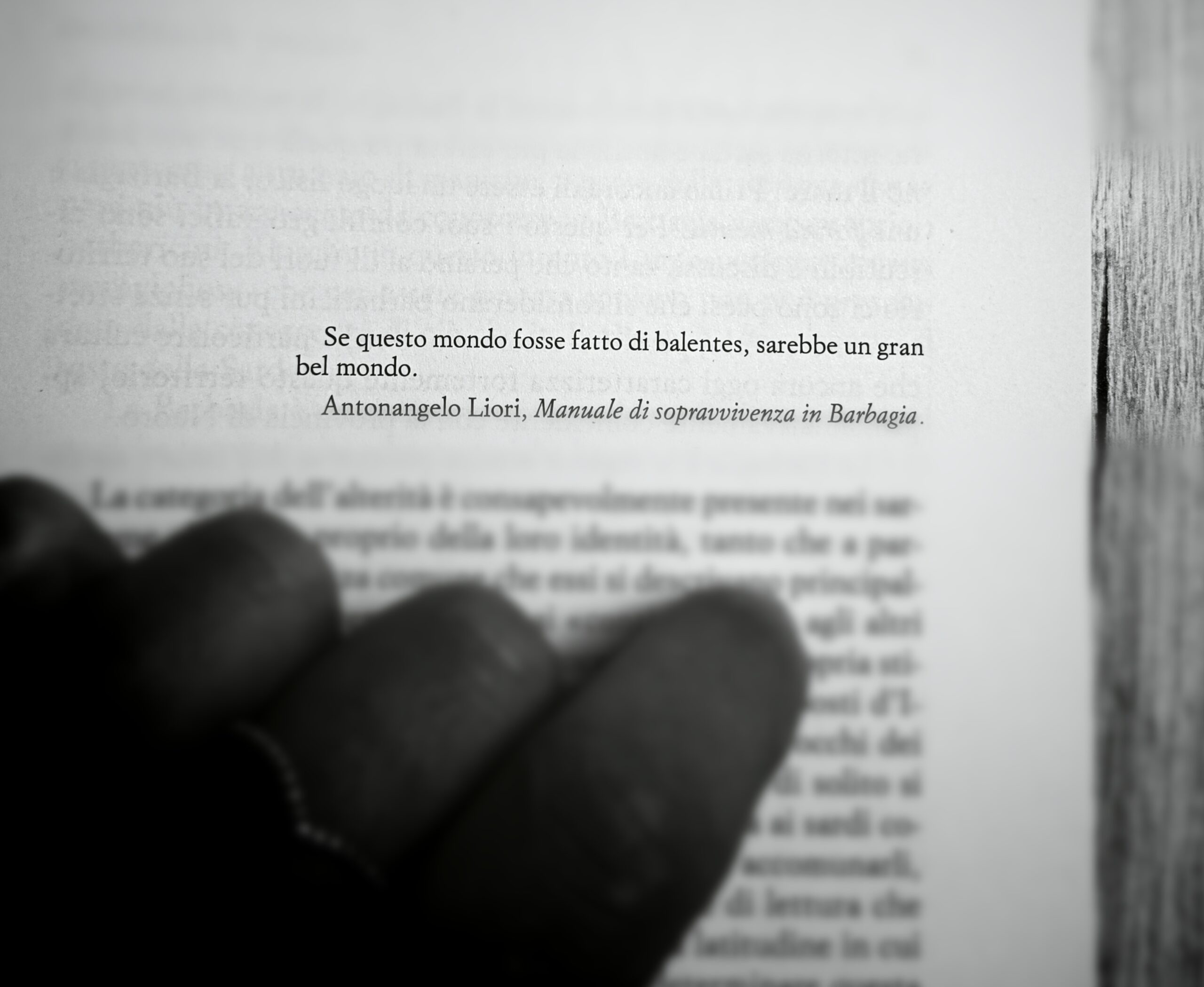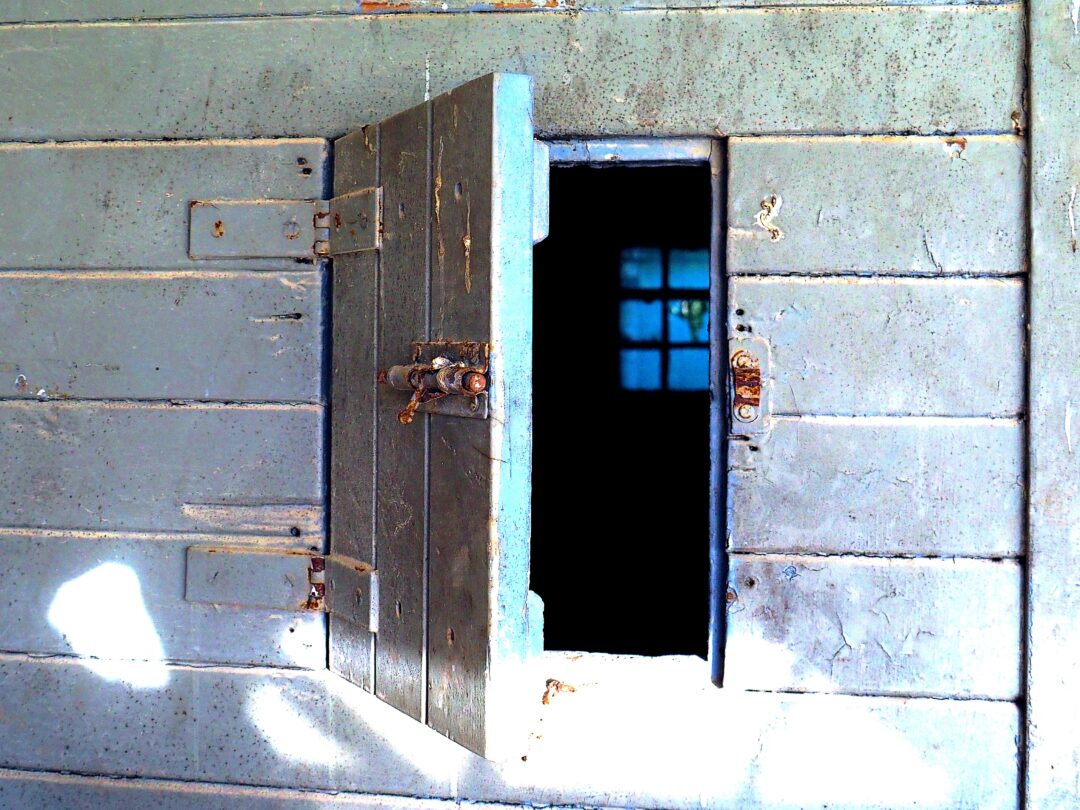If Roberto Saviano uses the phrase “We belong to each other” to describe love within criminal organizations, it is no coincidence: the verb to belong has nothing to do with love. Because love is freedom, it is allowing the other person to bloom at their own pace and, like a liquid adapting perfectly to its container, to take the shape meant for them, so that true love can unfold.
Journalist Tonia Mastrobuoni paints this image as she begins her conversation with the author at the Kühlhaus in Berlin, embarking on an incredibly difficult task: explaining in German a world that is not easy to convey even in Italian. Codes of honor, specific terminology, rules written in blood. Control over bodies. One cannot become a man of honor if their parents are divorced, if they betray their wife, if they visit prostitutes, gamble, use drugs, are homosexual, or simply, if they love and live life.
Cinema has always portrayed the mafia boss as a free man, confident and capable of making autonomous decisions thanks to his wealth and power, losing his freedom only when he ends up in prison. But in reality, freedom does not exist in a mafioso’s life to begin with. Because his life, and that of his family, does not truly exist; it is entirely oppressed in service of power, just another cog in the machine. His decisions are confined within rigid rules, and the space inside that enclosure is suffocatingly narrow.
That is why the daughter of the mafioso Condello, known as “The Supreme”, is not allowed to marry the man she loves, because love is not permitted in the mafia. That is why Maria Concetta Cacciola, when her husband is jailed for mafia association, is forced to disappear by drinking muriatic acid, because she dared to love a man who was not her husband. To love means to let go, and letting go means stepping away from the path of power. It means living. But to the mafia, love is useless: the only thing that matters is to dominate before being dominated, because in the eyes of a mafioso, there is no shade between black and white.
And if we observe evil from a distance, merely as spectators, through the stories that Saviano has been telling us for decades, the protagonists of criminal organizations, too, watch or imagine life from afar, without ever truly experiencing it. In the mafia, freedom does not exist. The individual does not exist. Love? Not even worth mentioning.
But Saviano reminds us that evil is not as distant as we think. We find it embedded in the capitalist dynamics we are immersed in, so powerful and untouchable for the very same reason criminal organizations are: they follow rigid rules and strict codes that disregard emotions and individual differences, serving only power.
So, if we look around us, we realize that prosecuting mafiosi does not mean eradicating the mafia mentality, which is deeply rooted in our institutions, our governments, our homes, and our workplaces.
This is where we must begin to change things: not just observing evil as passive spectators, as if it were a distant world that does not concern us, but recognizing it in the world we live in and confronting it with critical thinking and courage.
Because criminal organizations are merely the most extreme and brutal expression of a capitalism that has already invaded our mentality, long before we even realized it



